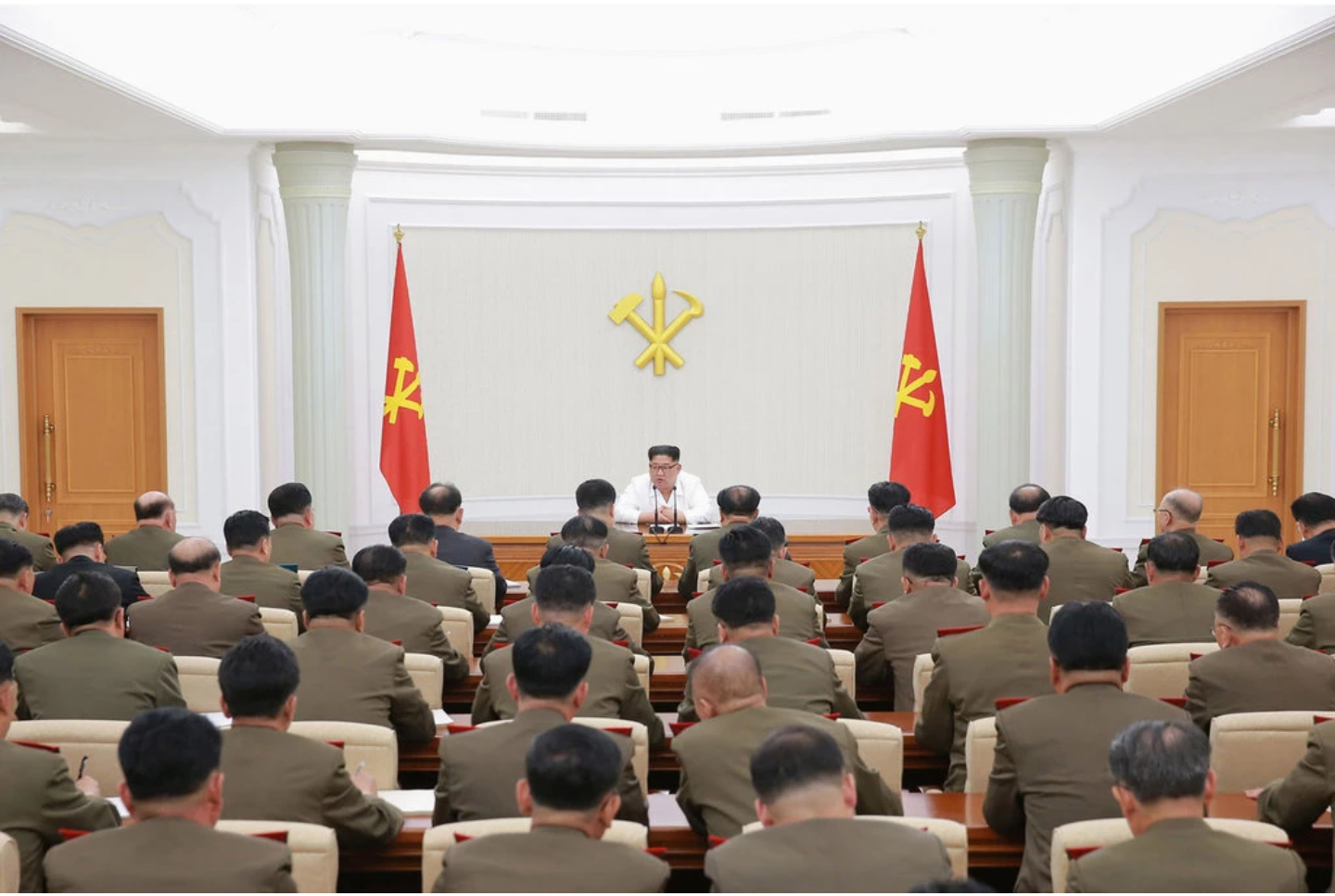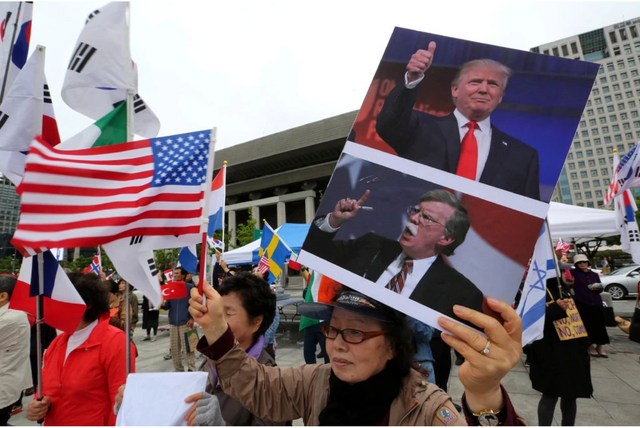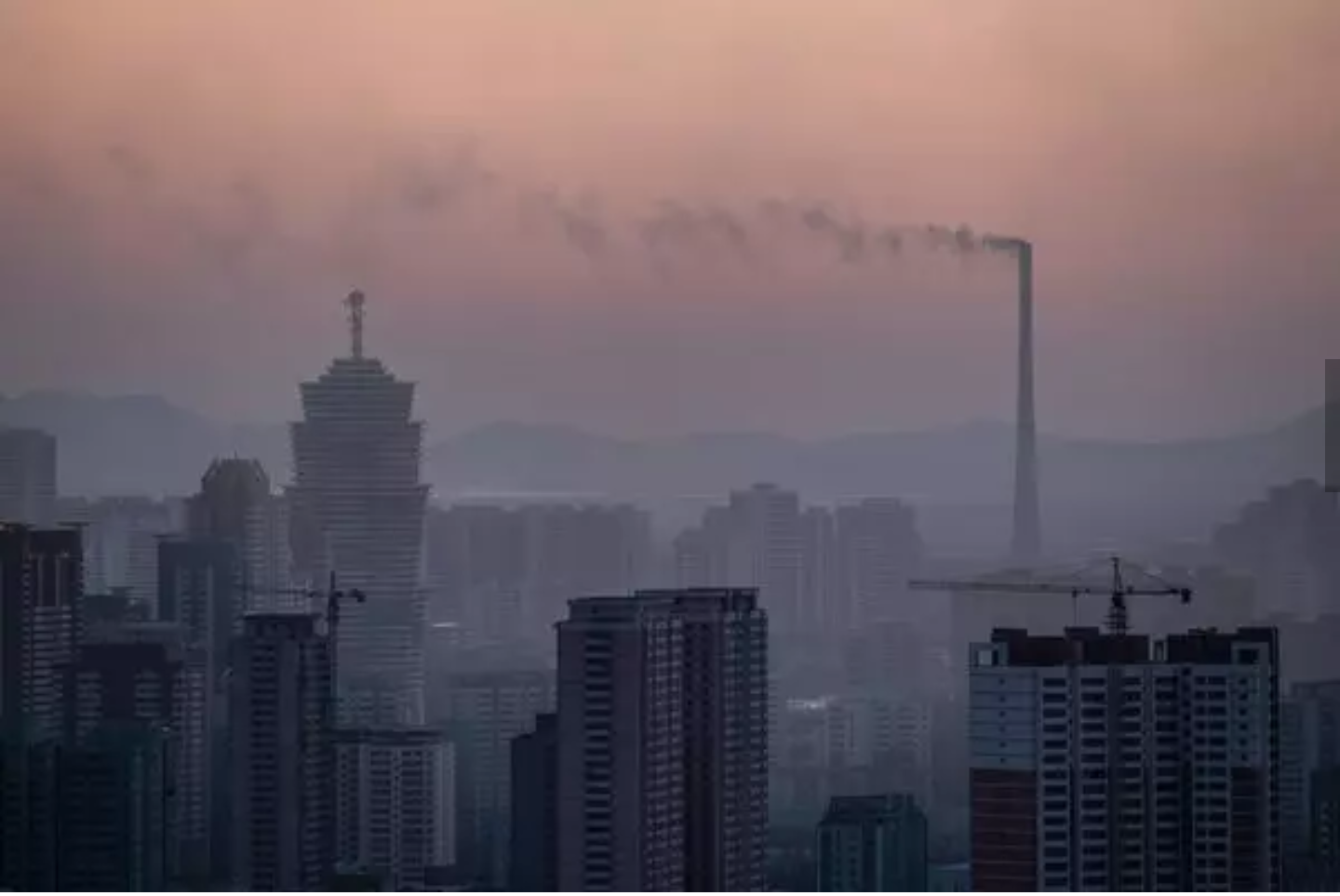U.S. and South Korea to Discuss North’s ‘Bright Future’

SEOUL, South Korea — When the South Korean president meets with President Trump in Washington next week, the two will discuss security assurances and economic incentives for a denuclearizing North Korea, following up on Mr. Trump’s reassuring words for the North’s young leader, a presidential aide in Seoul said on Friday.
At the White House meeting on Tuesday, President Moon Jae-in of South Korea hopes to advise Mr. Trump on the summit meeting planned on June 12 with the North Korean leader, Kim Jong-un, in Singapore. Mr. Moon, who had a dramatic meeting with Mr. Kim on the inter-Korean border on April 27, helped arrange the Singapore meeting.
As those talks near, however, North Korea has become increasingly disagreeable, threatening to cancel the event over fears that it will not get the rewards it is seeking in exchange for dismantling the nuclear arsenal the impoverished country has taken decades to build.
“The two heads of states will focus their discussions on detailed plans to achieve the complete denuclearization of North Korea and permanent settlement of peace on the Korean Peninsula,” Nam Gwan-pyo, a senior presidential aide to Mr. Moon, said on Friday of the White House meeting. “We expect them to discuss ways to guarantee a bright future for the North in return for its complete denuclearization.”
Mr. Moon has helped bring about a rare reconciliation on the Korean Peninsula, playing mediator between Mr. Kim and Mr. Trump. The South Korean leader has urged Mr. Kim to commit to denuclearization, arguing that he cannot improve the lives of his long-suffering people as long as North Korea retains its nuclear weapons, which have prompted harsh international sanctions. He has also urged Mr. Trump to promise security assurances and economic incentives for North Korea to convince it that it can be safe without a nuclear deterrent.
Mr. Moon’s approach faced challenges this week, however. North Korea suspended talks with the South, blaming joint military exercises the South held with the United States last week, which the North said was a rehearsal for invasion. And on Friday, North Korea declined to accept a list of eight South Korean reporters it had invited to watch the closing of its nuclear test site next week.

North Korea has also said that Mr. Kim will not be interested in meeting Mr. Trump if his hard-line aides, especially John R. Bolton, the national security adviser, insisted on North Korea accepting a quick and “unilateral nuclear abandonment,” as Libya did more than a decade ago under American pressure.
On Thursday, Mr. Trump sought to calm North Korea, promising that he would not treat North Korea and Mr. Kim the way the West did Libya and its former leader, Col. Muammar el-Qaddafi. North Korea says Colonel Gaddafi precipitated his downfall and death by agreeing to swap his nascent nuclear program for economic integration with the West.
Mr. Trump promised Mr. Kim “protections that would be very strong” in return for giving up its nuclear weapons.
“The Libyan model isn’t a model that we have at all, when we’re thinking of North Korea,” Mr. Trump said. “If you look at that model with Qaddafi, that was a total decimation. We went in there to beat him.”
“Now that model would take place if we don’t make a deal, most likely,” Mr. Trump warned. “But if we make a deal, I think Kim Jong-un is going to be very, very happy.”
Mr. Trump said that if North Korea were to denuclearize, the United States could help its “tremendously industrious” people follow “a South Korean model.”
He appeared to be referring to American military protection to the South, which allowed that country to recover from the devastation of the 1950-53 Korean War and to become a global economic powerhouse, while the North slid into famine and economic deprivation. Driven by fears for its survival, the North has stepped up its nuclear weapons program since the early 1990s.

Despite the North’s latest protest, American and North Korean officials have continued to make arrangements for the Singapore meeting, Mr. Trump said.
South Korean officials say they hope Mr. Kim and Mr. Trump will meet halfway, agreeing on an early timetable to exchange denuclearization for security guarantees from Washington. They suggest the exchange can take place in a “phased” manner, as the North demands, and be carried out quickly, as Washington wants — perhaps before the end of Mr. Trump’s presidential term in early 2021.
Washington appeared to embrace another suggestion that South Korean officials and analysts have been proposing for weeks: that North Korea and the United States should agree on “early trust-building measures” to give credibility to a denuclearization deal coming from the Kim-Trump meeting. Such measures could include dismantling long-range missile production facilities; allowing unfettered access to nuclear sites in the North; creating liaison offices in Pyongyang, the North’s capital, and Washington; and easing some sanctions, especially those that affect the lives of ordinary North Koreans, according to South Korean analysts.
On Friday, Mr. Moon’s office strongly denied a Japanese news report that his office had suggested to Mr. Bolton the idea of shipping some of the North’s nuclear weapons outside the country, as an early step toward denuclearization. .
This week, Susan A. Thornton, the acting assistant secretary of state, said that in the weeks leading up to the Singapore meeting, American and North Korean officials would negotiate what could be “front-loaded” by the North and the United States in what would be a long process toward denuclearization.
“It’s obvious that there will be multiple steps to any denuclearization,” she said, adding that verifying the process takes time. “The question is what could be front-loaded in a process that’s inevitably going to go on for some time. Then what would be acceptable to the North Korean side in return for that front-loading, whatever it is.”
Ms. Thornton added that the lifting of sanctions was not the only thing on the table.
“What Kim Jong-un and other North Korean leaders going back have always talked about is the need for some kind of security assurances and other kinds of assurances, legitimacy, respect from the international community,” she said. “He’s very young so he presumably wants to be around for a long time and maybe wants to have some kind of different future for his country.
https://mobile.nytimes.com/2018/05/18/world/asia/trump-moon-jae-in-south-korea-north-.html?smid=fb-nytimes&smtyp=cur